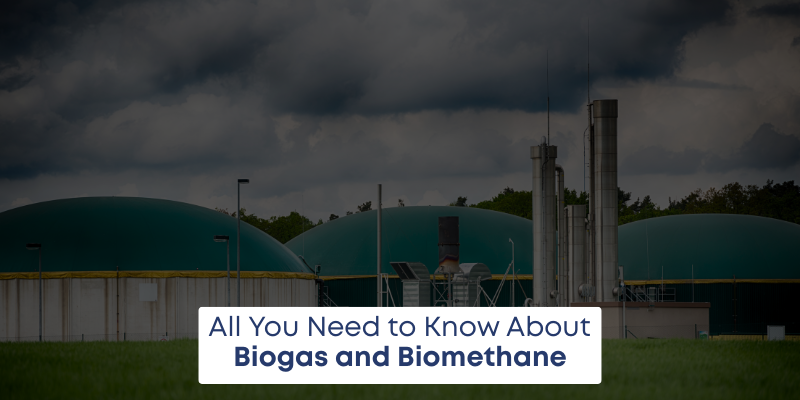As the world is switching to cleaner and more sustainable energy solutions, biogas and biomethane are emerging as critical players in the global energy transition.
Biogas is produced locally from the decomposition of organic waste, providing a sustainable, environmentally beneficial alternative to natural gas, which is a fossil fuel. India’s biogas companies are leading this change, converting food waste, industrial byproducts, and agricultural residues into valuable sources of green energy.
Biomethane, produced from biogas purification, takes this innovation a step ahead by providing a high-quality, renewable substitute for conventional natural gas.
Together, they represent not just a step toward sustainability but a major leap toward energy independence and environmental responsibility. This blog explores everything you need to know about how biogas and biomethane are reshaping the future of clean energy.
Biogas is Safe to Produce
Biogas or biomethane, produced from anaerobic digestion or oxygen-free bacteria, does not harm human health when produced in safe, well-regulated environments.
Biogas is produced through anaerobic digestion, in which microorganisms break down organic matter such as food waste and agricultural residues in the absence of oxygen.
Biogas Plants Can Bring Advantages to Local Communities
Actually, that’s absolutely true! Well-managed biogas projects help to improve the environment, local economy, and quality of life. In many areas, the installation of biogas plants has helped clean the bay by reducing nutrient and organic matter overload.
As a result, the water quality of that area is improved, recreational areas are restored, property values are increased, and quality of life is also enhanced. Moreover, the recirculated nutrients benefit the organic sector by providing sustainable fertilisers that comply with strict regulations for organic produce. Additionally, issues like odour, noise, and methane or ammonia emissions can be effectively reduced.
Offers Substantial Environmental and Climate Benefits
You might already know that decomposing organic waste releases methane gas, a greenhouse gas that is 28 times more harmful than CO2! So, instead of releasing this methane directly into the air, a compressed biogas plant collects it through controlled, sealed anaerobic digestion, producing biogas.
Furthermore, biogas plays a crucial role in meeting clean energy and climate targets as it offers cleaner, renewable alternatives to fossil fuels. Additionally, the biogas by-products can be used as a biofertiliser to enrich the soil.
Packed with Essential Nutrients
The production of biogas and biomethane generates valuable, sustainable, homegrown by-products like digestate, biogenic CO2, and biochar.
Here, digestate is the organic residue that is rich in phosphorus. Also, it is packed with nitrogen and potassium, used to enrich soil or made into biofertiliser.
After that, the biogas plant produces biogenic CO2, a purified form of CO2, which can be used in various applications as a boosting agent for plants in greenhouses, for biochemical production, for water treatment, and in the food and beverage sector.
Lastly, biochar improves soil health and breaks down feedstock.
Conclusion
In the end, biogas and biomethane are widely recognised as valuable for advancing the clean energy transition, which helps reduce emissions, strengthen energy security, and contribute to a more circular and resource-efficient economy.
 :
https://in.pinterest.com/biogaspurifier8154/
:
https://in.pinterest.com/biogaspurifier8154/












